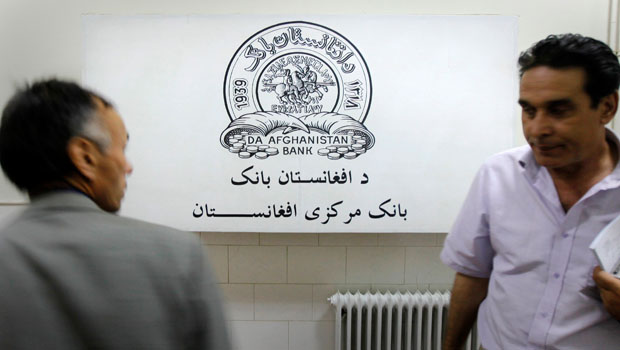The governor of the Afghan Central Bank, which is standing by to help if Kabul Bank collapses, assured customers that their deposits were safe and would be guaranteed by the government. At the same time, Abdul Qadir Fitrat said that, as a safeguard, the central bank had moved to ban the sale of properties that some of the bank's shareholders own in the capital.
Uncertainty about the future of the nation's largest bank, which is partly owned by Afghan President Hamid Karzai's brother, has further destabilized the war-torn country and efforts to build an effective government.
At the request of Afghan officials, a team from the International Monetary Fund arrived in Kabul on Sunday to review recent developments in the economic, financial and banking systems, an IMF official said.
Fitrat did not disclose details of the bank's financial condition and it remained unclear how much money would be needed to shore it up if customers keep draining deposits.
"The Afghan government said that it has sufficient funds to cover this," said the president's brother, Mahmood Karzai, who holds a 7 percent share in the bank. "They have $4.6 billion in the central bank so there is no problem. We're not talking about billions of dollars here." The run on the bank began last week after its top two executives were removed from their positions amid allegations of mismanagement, unorthodox lending practices and risky investments in property in Dubai where values have plummeted.
The central bank said Sherkhan Farnood, former chairman of Kabul Bank, and Khalilullah Ferozi, former chief executive officer, resigned because, under new reforms, only banking professionals can hold the top operating positions at banks. Farnood, a world class poker player who raised money for Karzai's re-election campaign, and Ferozi each own 28 percent of the bank's shares.
Mahmood Karzai said the bank's former chairman has said that $155 million was invested in two business properties and 18 villas in Dubai.
Karzai said the property was currently valued at about $160 million. "In principle there is no loss, but the loss is in the accumulated interest," he said.
He said he had been living in one of the villas, but planned to move out this week.
Like many foreigners, the Afghan buyers were enticed by Dubai's booming real-estate market in the heady years before the global economic downturn. At least some of the homes were bought as the market — once so hot that properties bought on speculation could be resold almost instantly raced toward its peak.
Prices have since plunged, and many brand-new luxury Dubai properties sit empty. Real estate consultancy Colliers International estimates prices have fallen by nearly half since their high in the second part of 2008.
The Palm Jumeirah, where many of the villas are located, is one of several man-made islands built off Dubai's Gulf coast.
It is built in the shape of a palm tree, with gated communities of high-end villas — each with a private beach — lining its branches. Development of the island is only partially complete, with a hotel being partly built by Donald Trump among several projects stalled in the economic slump.
If problems at the bank are not resolved, it could have wide-ranging political repercussions. It handles the pay for government workers, soldiers and police in Afghanistan, which is beset by a Taliban insurgency and is awash in drug money and billions in international aid. Kabul Bank's woes further underscore entrenched problems with cronyism and corruption, with millions of dollars allegedly loaned to relatives and friends of the ruling elite.
Fitrat, the governor of the central bank, stressed that Kabul Bank was strong and noted that it was still posting millions of dollars in deposits at the same time that it was processing millions of withdrawals. Fitrat said he did not know the total amount that had been withdrawn by customers.










